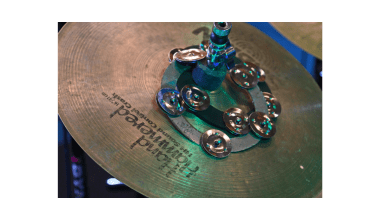When we talk about the music industry, terms like “master recording” often pop up. But what does it actually mean? If you’re new to music production, rights, or even just a curious fan, understanding what a master recording is can help you appreciate the music business better. In this blog, we’ll take a deep dive into the concept, why it’s crucial for artists, and how it impacts the music you enjoy every day.
Let’s get started!
The Basics: What Is a Master Recording?
At its core, a master recording is the original version of a song or album. Think of it as the “master copy” from which all other copies are made. When artists record their music in the studio, the final polished track becomes the master recording. It’s essentially the definitive version of the song, the one that goes on to be duplicated, streamed, or sold.
For example, when you listen to a song on Spotify or buy a vinyl record, what you’re hearing is derived from the master recording. This makes it incredibly valuable—it’s the source of all revenue streams for that piece of music.
Why Are Master Recordings So Important?
Master recordings are important because they represent ownership and control over a song. Whoever owns the master recording has the ultimate say in how it’s used. This can include:
- Licensing it for movies, TV shows, or commercials.
- Distributing it on streaming platforms.
- Selling physical copies like CDs or vinyl.
For artists, owning their master recordings means they can reap the full benefits of their work. However, many artists don’t own their masters. Instead, record labels often hold these rights.
The History of Master Recordings
To understand the current significance of master recordings, it helps to know their history. In the early days of the music industry, record labels almost always owned the masters. Artists signed contracts that gave labels control over their recordings in exchange for financial backing and promotion.
Over time, however, artists began to push for more control. In recent years, big names like Taylor Swift have brought the issue of master ownership into the spotlight, advocating for musicians to retain ownership of their work. This shift has sparked broader discussions about artists’ rights in the industry.
Who Owns the Master Recording?
Ownership of a master recording depends on the contract between the artist and the record label. Typically:
- Record Labels: Most traditional contracts give labels ownership of the masters. They’re responsible for funding the recording, marketing, and distribution.
- Independent Artists: Independent artists who self-fund their music usually own their masters.
- New Negotiations: Some artists negotiate contracts where they retain or eventually regain ownership of their masters.
Why Do Artists Fight for Master Ownership?
Artists fight for their master recordings because they represent both artistic and financial freedom. Owning the master means:
- Creative Control: Artists decide how their music is used.
- Revenue: All profits from licensing or distribution go to the owner.
- Legacy: Masters are a long-term asset that can be passed down.
When artists don’t own their masters, they often lose out on significant earnings and control. This is why master ownership is such a hot topic in the industry.
How Are Master Recordings Monetized?
Master recordings are monetized in several ways, including:
- Streaming Revenue: Every time a song is streamed on platforms like Spotify or Apple Music.
- Physical Sales: CDs, vinyl, and other physical formats.
- Licensing: Using the song in movies, commercials, or video games.
Each of these revenue streams contributes to the overall value of a master recording. This is why owning the master is such a big deal for both artists and record labels.
The Difference Between Masters and Publishing Rights
Another key concept in music rights is publishing. While the master recording is the original recording of a song, publishing rights refer to the songwriting—the lyrics, melody, and composition. It’s possible for one person to own the master and another to own the publishing rights. For example:
- The artist or record label owns the master.
- The songwriter or a music publisher owns the publishing rights.
Both are valuable, but they serve different purposes in the music industry.
Famous Cases Involving Master Recordings
Several high-profile cases have highlighted the importance of master recordings. For example:
- Taylor Swift: Swift’s battle to regain control of her masters brought this issue into the public eye. She’s re-recording her albums to own the new masters.
- The Beatles: Ownership of The Beatles’ master recordings has been a contentious issue for decades, involving disputes between the band, record labels, and other parties.
These cases show how master recordings can become central to artists’ careers and legacies.
How Can Artists Protect Their Masters?
If you’re an artist, here are some tips for protecting your master recordings:
- Read Contracts Carefully: Understand who will own the masters before signing any deals.
- Consider Independent Routes: Self-funding your music can ensure you retain ownership.
- Negotiate Ownership Terms: If you’re working with a label, try to negotiate better terms for master ownership.
Taking these steps can help artists maintain control over their music and their future earnings.
The Future of Master Recordings
The landscape of master recordings is changing. With the rise of independent artists and digital distribution, more musicians are choosing to retain ownership of their masters. At the same time, awareness of artists’ rights continues to grow, pushing the industry toward greater transparency and fairness.
Conclusion
Master recordings are the foundation of the music industry. They represent the original, definitive versions of songs and hold immense value for artists and record labels alike. Whether you’re an artist or a music fan, understanding what a master recording is and why it matters can deepen your appreciation for the art and the business of music.
For further reading, explore these related articles:
For additional resources on music marketing and distribution, visit DMT Records Private Limited.






